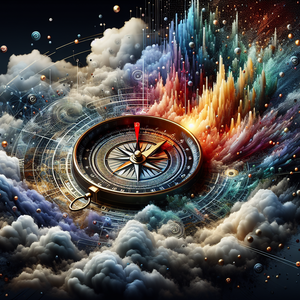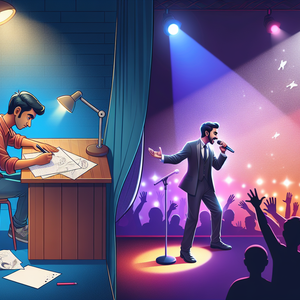The Future of Storytelling: Character AI as Co-Authors

Character AI, driven by sophisticated algorithms and natural language processing capabilities, enables digital entities to generate dialogue, develop character backgrounds, and even suggest plot twists. As writers increasingly embrace this technology, character AI serves as a source of inspiration, helping to overcome writer's block and generate fresh ideas. For instance, tools like OpenAI's GPT-3 have demonstrated their ability to draft coherent and contextually relevant narratives, making them valuable assets for creative professionals. These AI systems can analyze vast datasets, learning from numerous literary sources to generate contextually appropriate content. This capability allows writers to explore diverse genres and styles without the constraints typically associated with traditional writing processes. Character AI can suggest unique narrative arcs and character interactions, effectively expanding the creative toolbox available to authors.
Enhancing Character Development
One of the most significant advantages of integrating character AI into storytelling is its ability to create multi-dimensional characters. AI can analyze extensive datasets from existing literature, films, and games to understand character motivations, traits, and arcs. By utilizing this data, AI can suggest character developments that resonate with audiences. For example, a character AI might propose a backstory that adds depth to a protagonist or generate dialogue that reveals hidden vulnerabilities, allowing for richer interactions. Moreover, character AI can adapt to the evolving nature of a story. As plots twist and turn, AI systems can respond in real-time, suggesting alterations to character dynamics or introducing new elements that keep the narrative engaging. This adaptability leads to unique storytelling experiences that differ from traditional linear narratives, inviting audiences to explore various 'what if' scenarios.
Collaborative World-Building
The collaborative potential of character AI extends beyond character development; it also plays a crucial role in world-building. Writers can leverage AI to create intricate universes by generating lore, history, and cultural nuances that enrich the story's setting. This input is especially beneficial for genres like fantasy and science fiction, where intricate world-building is essential to immerse readers or players.
Challenges and Ethical Considerations
While the benefits of character AI as co-authors are substantial, there are also challenges and ethical considerations to address. Questions about ownership and intellectual property arise when AI contributes significantly to a narrative. Who owns the story when an AI has played a pivotal role in its creation? Additionally, there is the risk of AI perpetuating biases present in the data it was trained on, leading to problematic portrayals of certain characters or cultures. Writers and creators must navigate these ethical dilemmas thoughtfully, ensuring that they maintain a clear vision and intent in their storytelling.
The integration of character AI into storytelling represents a paradigm shift that offers exciting possibilities for writers, filmmakers, and game developers. By acting as co-authors, these AI systems can enhance creativity, encourage innovative approaches to character and world development, and provide unique narrative experiences. However, as we embrace this technology, it is vital to remain mindful of the ethical implications and challenges that accompany it.
Narrative Designer
Ubisoft, Electronic Arts, independent game studios
Job Description
Develops character arcs, dialogues, and storylines for video games, films, or interactive media.
Collaborates with artists and programmers to ensure narrative elements align with gameplay mechanics.
Requires strong writing skills, understanding of game design principles, and proficiency in storytelling software.
AI Ethicist
Google, Microsoft, AI startups
Job Description
Analyzes the ethical implications of AI technologies in creative industries, focusing on issues like bias and ownership.
Collaborates with engineers and developers to create guidelines that ensure responsible AI usage in storytelling.
Requires a background in ethics, law, or social sciences, along with familiarity in AI technologies and their applications.
Interactive Storytelling Producer
Telltale Games, Netflix, innovative media firms
Job Description
Oversees the development of interactive narratives for games and digital media, ensuring they engage the audience and enhance user experience.
Works closely with writers, designers, and developers to create cohesive and immersive worlds.
Requires project management skills, knowledge of interactive storytelling techniques, and experience with multimedia production.
Character AI Developer
Pixar, DreamWorks, tech companies specializing in AI, gaming studios
Job Description
Designs and implements AI systems that create and evolve character behaviors and dialogue in narrative-driven projects.
Collaborates with writers and designers to ensure AI-generated content aligns with the story's tone and direction.
Requires strong programming skills, experience in natural language processing, and knowledge of machine learning algorithms.
Creative Technologist
Disney, Adobe, high-tech startups
Job Description
Merges technology and creativity to develop innovative storytelling experiences across digital platforms.
Experiment with emerging technologies such as AI, AR, and VR to create compelling narratives.
Requires a blend of creative skills (writing, design) and technical capabilities (coding, software development).


